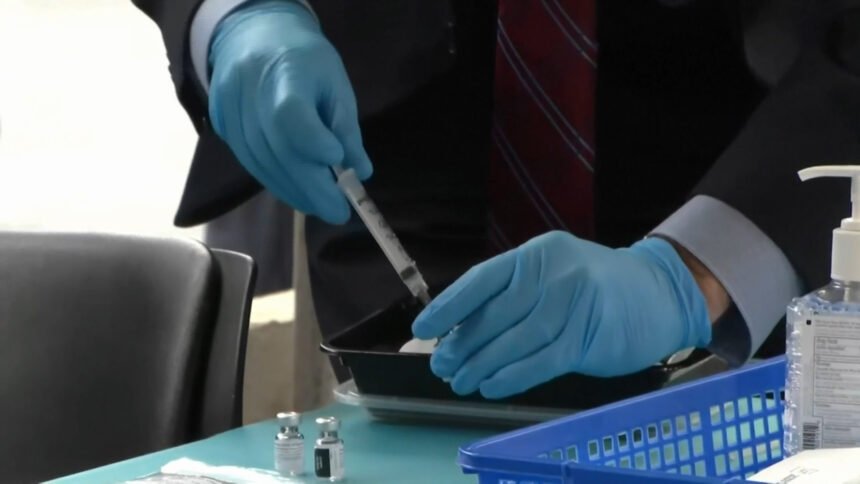How the pandemic, civil unrest and wildfires led to new California laws in 2021

On January 1, 2021 several new laws went into effect. Many were the product of 2020s vast amount of conflicts, ranging from the pandemic, civil unrest and raging wildfires.
In accordance with a state law that took effect on January 1, 2017 minimum wage will continuously rise at least until 2023 in an effort for minimum wage to reach $15/hour.
On January 1, 2021 businesses with 26 employees or more were required to pay an extra dollar, amounting to $14/hour. Businesses with 25 employees or less also were required to pay an extra dollar, amounting to $13/hour.
"Pretty tough quality of life right now, especially in California. Everything is so expensive. You got to keep up somehow and if the employers aren’t doing it themselves maybe they have to be told at times to do so. It is tough to live down here," said San Diego resident, Jorge Espinoza.
While many agreed with the wage hike, others believe it will hinder small businesses.
"I think it’s a double edged sword. By taking out the hourly wage, that could minimize the amount of employees that could actually have an opportunity to have a job period, because the employers are having to offset the increase hourly," said Los Angeles resident, Angie Kalayjian.
Another law, AB-685, is directly related to the pandemic. Businesses will now be required to notify employees, the public, and proper state agencies within one day of someone testing positive for coronavirus, or if there is a threat of exposure to the virus.
"I believe that unfortunately it is necessary. However, there are unintended consequences. For example, the social stigma of having tested positive," said Palm Desert resident, Kevin Yu.
The law is slated to last through January 1, 2023.
AB-3121 has stirred up a bit more controversy. The bill calls to create a task force dedicated to studying and developing potential reparations for African Americans who are descendants of slaves in the United States. A total of 9 members will be appointed, and the governor will call the first meeting no later than June 1, 2021.
"That is an extremely touchy subject and I don’t think I should have a say in something like that," said Espinoza.
While some did not want to comment, others weighed in.
"But when we talk about reparations, we’re only thinking about a certain segment of the community. People don’t think about, let’s say the Asian Americans who were also subject to racist laws and deserve representation as well," said Yu.
"We have amazing laws, we can improve them by discussion but to give money because somebody was a slave a long time ago, what about other cultures? We have Indians here, we have Egyptians, we have Iraqi, we have Syrians," said Orange County resident, Amir Aziz, Orange County.
"I think we have to take history for what it is and at the time that it occurred, but if we take history from 100 years back or 200 years back and then put it into perspective in today’s world, it’s just not going to coincide. So to make up for something, what seemed to be the thing to do in those days, we can’t turn time back and try to make it right. I think we have to learn from history and [apply] it to our future so that we can be smart about these things, but not necessarily go back and try to fix it," said Kalayjian.
After more than 4 million acres burned from wildfires that ravaged the state in 2020, inmate firefighters may now have a shot at becoming career firefighters.
AB-2147 would allow some former inmates to petition at having convictions expunged after having served the California Conservation Camp program while incarcerated. The law would allow for an easier pathway to pursue a job after being released.
The law does not apply to those convicted of murder, arson, rape, kidnapping and other serious crimes.
SB-480 was created to demilitarize law enforcement uniforms.
AB-47 highlights stricter regulations for texting and driving.
For more laws enacted in 2021 you can find them at: https://leginfo.legislature.ca.gov/faces/home.xhtml
